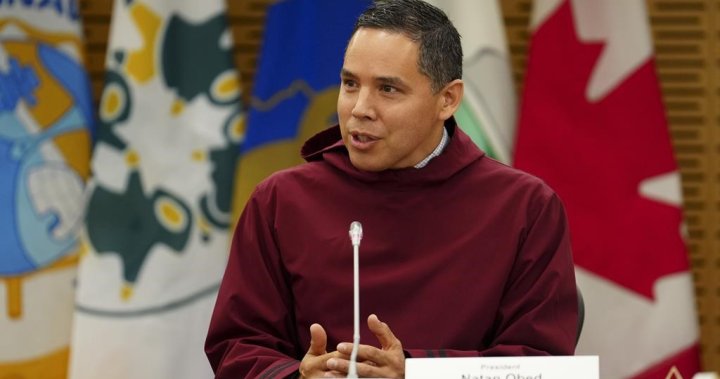The leaders of the three national Indigenous organizations have expressed that the current Liberal party is not the same as the one elected in 2015 promising to build new relationships with Indigenous Peoples. They have faced challenges in implementing their clear positions and progressing towards their rights and building a better relationship with the country. The government’s agenda has shifted towards addressing issues such as the housing crisis and the high cost of living, leaving Indigenous Peoples feeling neglected as they have been on the front lines of these crises for years. A call for a willing partner from the government has been emphasized by Indigenous leaders as they approach an upcoming federal election.
A major area of contention is the recognition of who is considered Indigenous, particularly with the introduction of Bill C-53 aimed at recognizing Métis governments in Ontario, Alberta, and Saskatchewan. This has led to questions about the definition of who should be considered Métis, causing disputes and uncertainty within Indigenous communities. Indigenous leaders are pushing for a fair process of determining Indigenous identity and highlighting the risks of individuals falsely claiming Indigenous status for personal gain. Crown-Indigenous Relations Minister Gary Anandasangaree emphasizes the government’s role is not to be the arbiter of Indigenous identity but to ensure a fair process guided by historical records for confirming identity.
Child welfare is another crucial issue, with a recent $47.8-billion agreement reached between the federal government and First Nations to reform the on-reserve child welfare system. However, the deal has caused fractures among chiefs, with some believing it does not go far enough in addressing the issues. Additionally, legislation, such as Bill C-61, intended to ensure clean water access for First Nations communities, has stalled in the House of Commons committee, raising concerns about the government’s commitment to Indigenous rights. The passage of bills and agreements in support of Indigenous Peoples remains uncertain with political uncertainties and opposition.
The introduction of a National Council for Reconciliation earlier this year, fulfilling a call to action from the Truth and Reconciliation Commission’s report, has received mixed reactions from Indigenous leaders. The council, intended to monitor and report on the government’s progress towards reconciliation, has been criticized as “toothless” by some Indigenous leaders who fear it could be weaponized against them. Despite differences in opinion, Crown-Indigenous Relations Minister Anandasangaree defends the council, stating it will not replace existing accountability structures between Indigenous organizations and the government. He emphasizes that reconciliation is a challenging and active process that will require long-term commitment and effort from successive governments.
There are concerns about the pace of progress on important agenda items, such as the recognition of rights, child welfare reforms, infrastructure gaps, and clean drinking water access for First Nations communities. Indigenous leaders are urging the government to fulfill these unmet commitments and work towards building a better relationship with Indigenous Peoples. As the country approaches a federal election, the Indigenous organizations stress the need for a willing partner in the government to address the challenges faced by Indigenous communities and implement necessary reforms and policies. The future of Indigenous relations in Canada hinges on the government’s ability to work collaboratively with Indigenous Peoples to address key issues and foster a more inclusive and equitable society for all.













